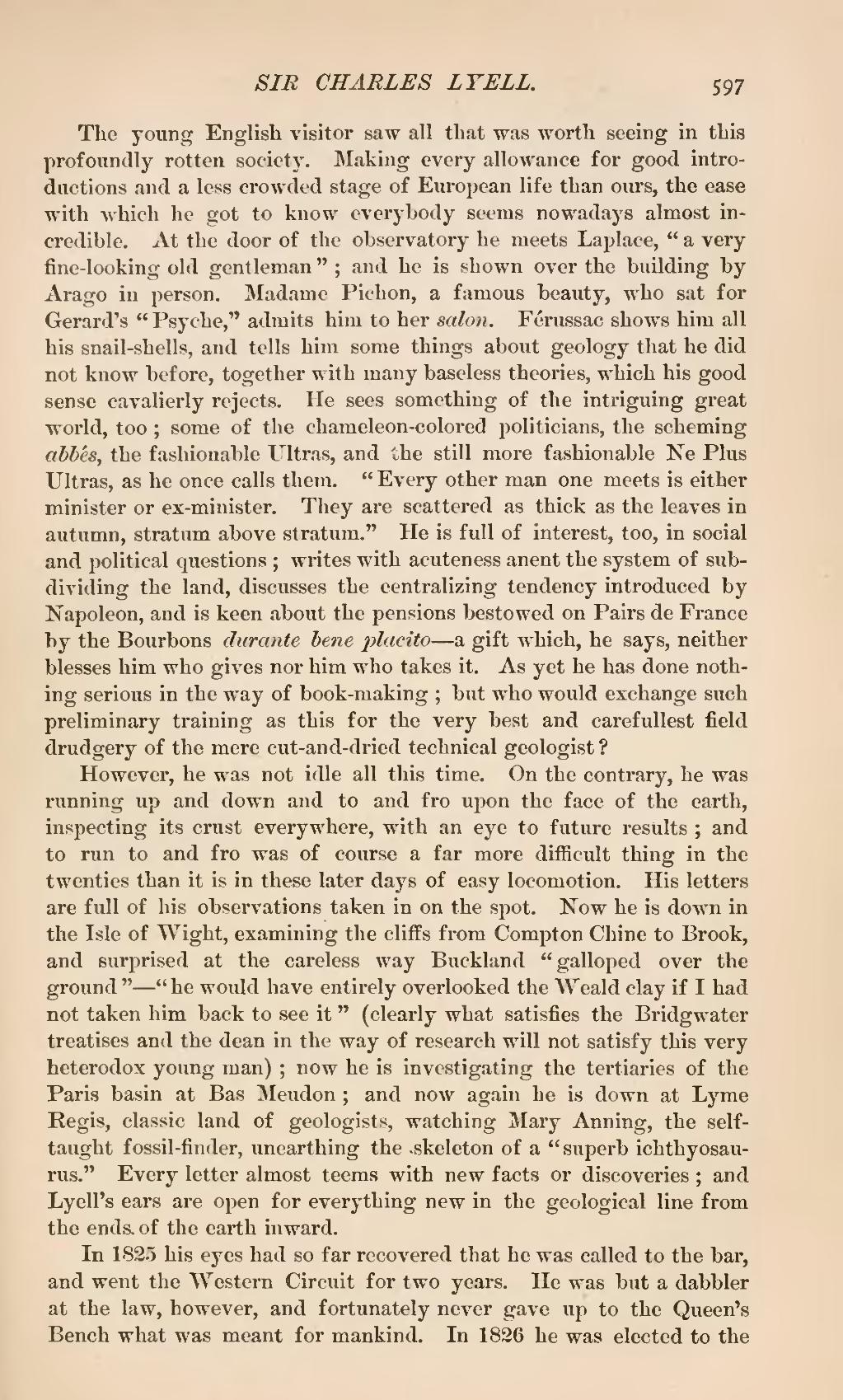The young English visitor saw all that was worth seeing in this profoundly rotten society. Making every allowance for good introductions and a less crowded stage of European life than ours, the ease with which he got to know everybody seems nowadays almost incredible. At the door of the observatory he meets Laplace, "a very fine-looking old gentleman"; and he is shown over the building by Arago in person. Madame Pichon, a famous beauty, who sat for Gerard's "Psyche," admits him to her salon. Férussac shows him all his snail-shells, and tells him some things about geology that he did not know before, together with many baseless theories, which his good sense cavalierly rejects. He sees something of the intriguing great world, too; some of the chameleon-colored politicians, the scheming abbés, the fashionable Ultras, and the still more fashionable Ne Plus Ultras, as he once calls them. "Every other man one meets is either minister or ex-minister. They are scattered as thick as the leaves in autumn, stratum above stratum." He is full of interest, too, in social and political questions; writes with acuteness anent the system of subdividing the land, discusses the centralizing tendency introduced by Napoleon, and is keen about the pensions bestowed on Pairs de France by the Bourbons durante bene placito—a gift which, he says, neither blesses him who gives nor him who takes it. As yet he has done nothing serious in the way of book-making; but who would exchange such preliminary training as this for the very best and carefullest field drudgery of the mere cut-and-dried technical geologist?
However, he was not idle all this time. On the contrary, he was running up and down and to and fro upon the face of the earth, inspecting its crust everywhere, with an eye to future results; and to run to and fro was of course a far more difficult thing in the twenties than it is in these later days of easy locomotion. His letters are full of his observations taken in on the spot. Now he is down in the Isle of Wight, examining the cliffs from Compton Chine to Brook, and surprised at the careless way Buckland "galloped over the ground"—"he would have entirely overlooked the Weald clay if I had not taken him back to see it" (clearly what satisfies the Bridgwater treatises and the dean in the way of research will not satisfy this very heterodox young man); now he is investigating the tertiaries of the Paris basin at Bas Meudon; and now again he is down at Lyme Regis, classic land of geologists, watching Mary Anning, the self taught fossil-finder, unearthing the skeleton of a "superb ichthyosaurus." Every letter almost teems with new facts or discoveries; and Lyell's ears are open for everything new in the geological line from the ends, of the earth inward.
In 1825 his eyes had so far recovered that he was called to the bar, and went the Western Circuit for two years. He was but a dabbler at the law, however, and fortunately never gave up to the Queen's Bench what was meant for mankind. In 1826 he was elected to the
